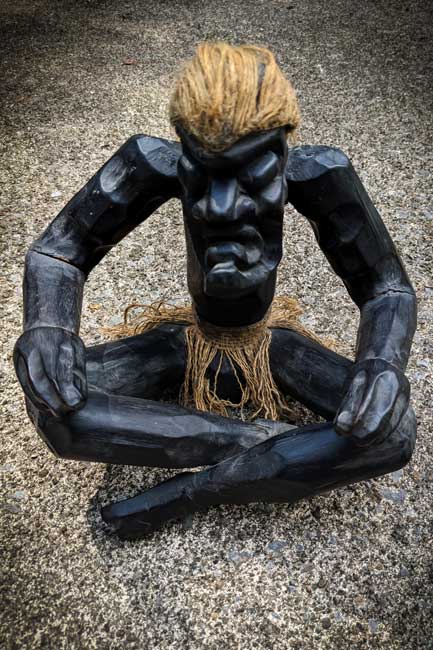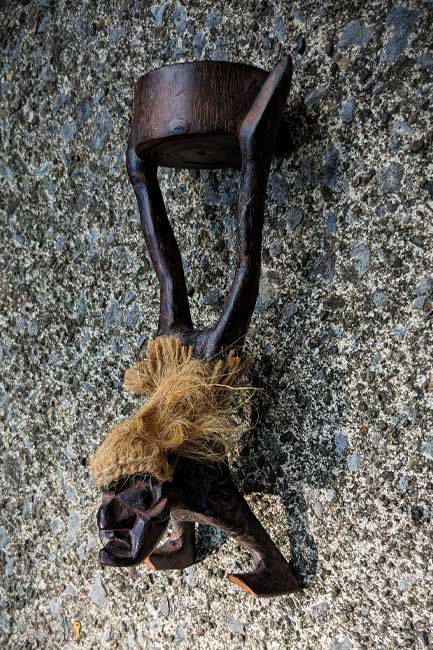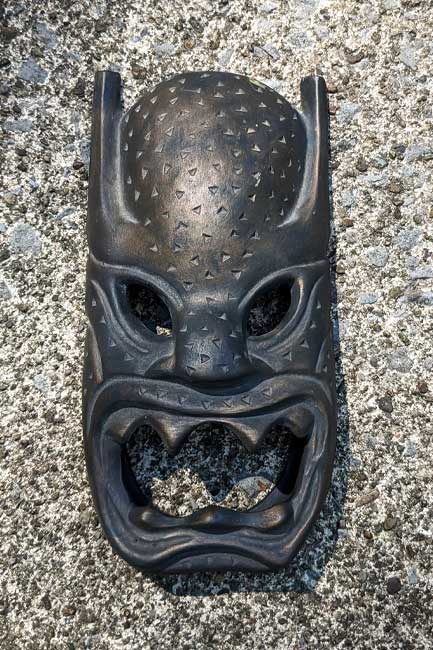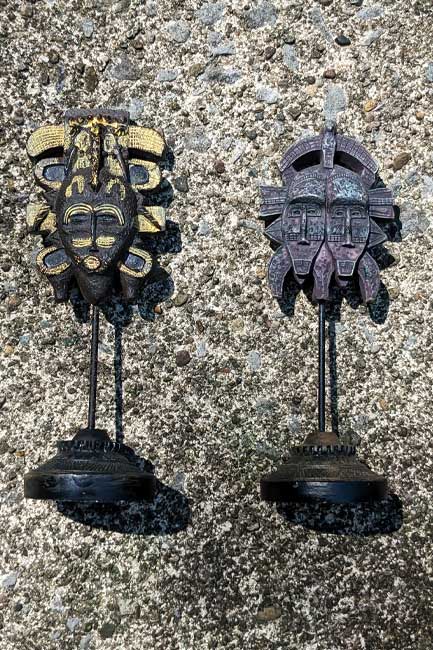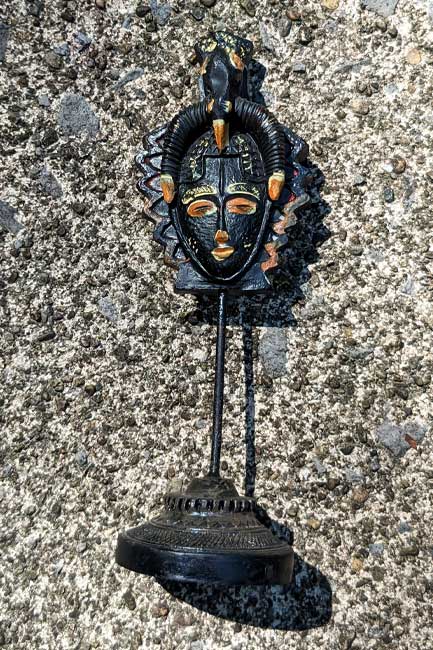Maasai Tribal Mask
This mask is a tribal wedding/friendship mask utilizing the colors and styles of the Maasai tribe of Kenya. Carved from local wood within Kenya, two faces are featured on the mask which represent a union between two people.
"At a very young age, I took interest in African art, specifically tribal masks. As a child, I often spent time with my mother searching for arrowheads, an essential tool used by Native Americans for hunting, warfare, self-defense, ceremonies, and rituals. We would walk through gardens and creek beds carefully examining the ground in search of a Native American relic. As part Cherokee, arrowheads are a reminder of my ancestors and their rich culture. They are also a symbol of our strength and resilience. I truly feel this connection is what developed my interest in African tribal masks as the two retain several similar meanings.
African tribal masks are used in many different rituals, such as coming-of-age ceremonies, initiation rites, funerals, and weddings. The masks can help to mark these important life events and to communicate the values and beliefs of the community. They are often worn by dancers and musicians in performances that are meant to entertain and educate the community. Masks can also be used in plays and other theatrical productions.
Today, African tribal masks can be used to teach about the history, culture, and values of the community. The masks can be used to tell stories, to explain religious beliefs, and to teach moral lessons.
In addition to these specific significances, African tribal masks are also important because they are a form of art. The masks are often beautifully carved and decorated, and they represent the creativity and skill of the artists who made them. Masks are also a way for African cultures to express their unique identity and to share their stories with the world.
This collection includes masks crafted by East and West Africans (Kenya and Nigeria) and hold a very special place in my heart. Several of these masks were collected locally from visiting African wood sculptors while others were purchased while visiting Florida. One mask was a gift from my wife. This mask is a tribal wedding/friendship mask utilizing the colors and styles of the Maasai tribe of Kenya. Carved from local wood within Kenya, two faces are featured on the mask which represent a union between two people.
This collection is dedicated to the memory of my father, John P. Campbell."
-Paul Campbell
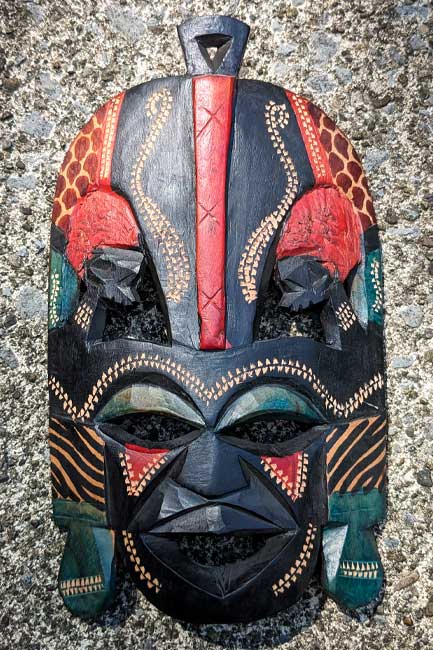
This mask is a tribal wedding/friendship mask utilizing the colors and styles of the Maasai tribe of Kenya. Carved from local wood within Kenya, two faces are featured on the mask which represent a union between two people.
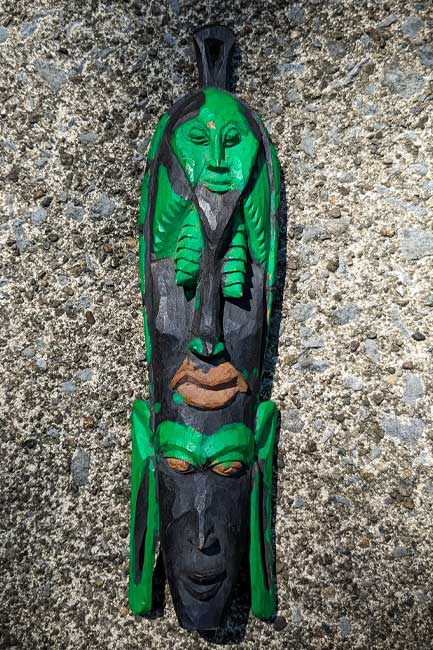
This mask is a carved creation by Nigerian artist Masaku.



